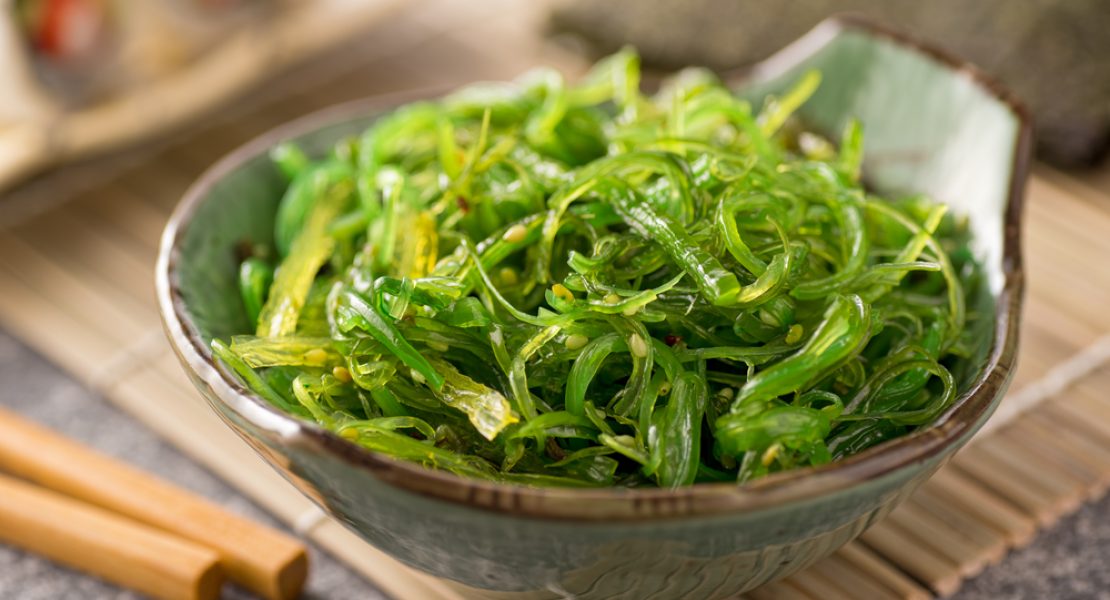
Every year we seem to stumble across a new superfood that changes the landscape of healthy eating. The recent kale revolution has shown us that there are foods out there that can take the world by storm, and it seems that seaweed is set to take the crown in 2017.
Long admired by the sushi-eating community, more is coming to light about the benefits of seaweed and why it is set to be the next big ‘superfood’ in many people’s daily diets.
Variety and versatility
Seaweed comes in many different forms and types, and each of these is used in different culinary ways. For example, nori seaweed is the type we most commonly see used in sushi. It is dry and brittle and works best to wrap up rice, avocado, fish or whatever else you choose to make your sushi out of.
Dulse seaweed, by contrast, is soft, moist and chewy, and is often eaten in flakes as an individual snack or as a seasoning or flavouring for salads, soups and other dishes.
Kelp is the most common seaweed that comes to mind when we think of seaweed as an individual food, as it is eaten in sheets or strips almost like beef jerky as a singular snack.
The versatility of seaweed makes it a prime candidate for inclusion in many different diets, giving it a mass appeal. The likelihood that anyone would overindulge in seaweed consumption is small – the smoky, salty flavour is not one that is normally associated with excess. This is a strong argument in favour of its consideration as a universal superfood.
High natural salt and iodine content
As one would expect, since it is borne from the sea, seaweed is always high in natural salt content, which is a bonus for us. While we hear a lot about the problems with a high salt diet, those problems mostly come from processed, manufactured salt, whereas natural salt is necessary for the maintenance of a healthy body. Seaweed’s benefits include maintenance of a regular heartbeat, controlling acidic content in the body, and clearing congestion of mucus and phlegm buildups.
A lot of seaweed also contains plenty of iodine, a mineral that is also a wide-ranging asset for a healthy system, as it helps to optimise digestion, strengthen your arteries, and even enhance brain cell function. In fact, some types of seaweed take care of your necessary daily iodine intake in just one gram.
Natural vitamins and minerals
Seaweed has an immense variety of vitamins, minerals, and antioxidants that occur naturally, making it an excellent superfood since it can help deal with basically any problem your system can throw at you. It is very rich in calcium and protein, as well as containing large amounts of Vitamins A, C, E and K, phosphorus, manganese, iron and magnesium. It is also a potent source of natural antioxidants.
The fact that seaweed is grown in the sea, and hasn’t been tampered with or cultivated by farmers, gives it a distinct advantage over other vegetables and legumes. This is because it is naturally exposed to many more nutrients than those grown in nutrient-deficient soils on farms.
Disease prevention
Seaweed has been shown to have great benefits for your immune system. Thanks to a plentiful supply of molecules known as fucoidans, which have also been linked to improved life expectancy, seaweed has a dramatic long term effect on cardiovascular function and on your day-to-day immune system.
Studies have shown that Okinawans, a Japanese subculture whose diet is framed around the use of seaweed, have much better bodily health and an increased longevity, leading to the conclusion that a seaweed-centric diet has positive effects when it comes to chronic disease prevention.
Also, seaweed is actually surprisingly tasty, so what’s not to love? Here’s to seaweed – the superfood en vogue of 2017.






















